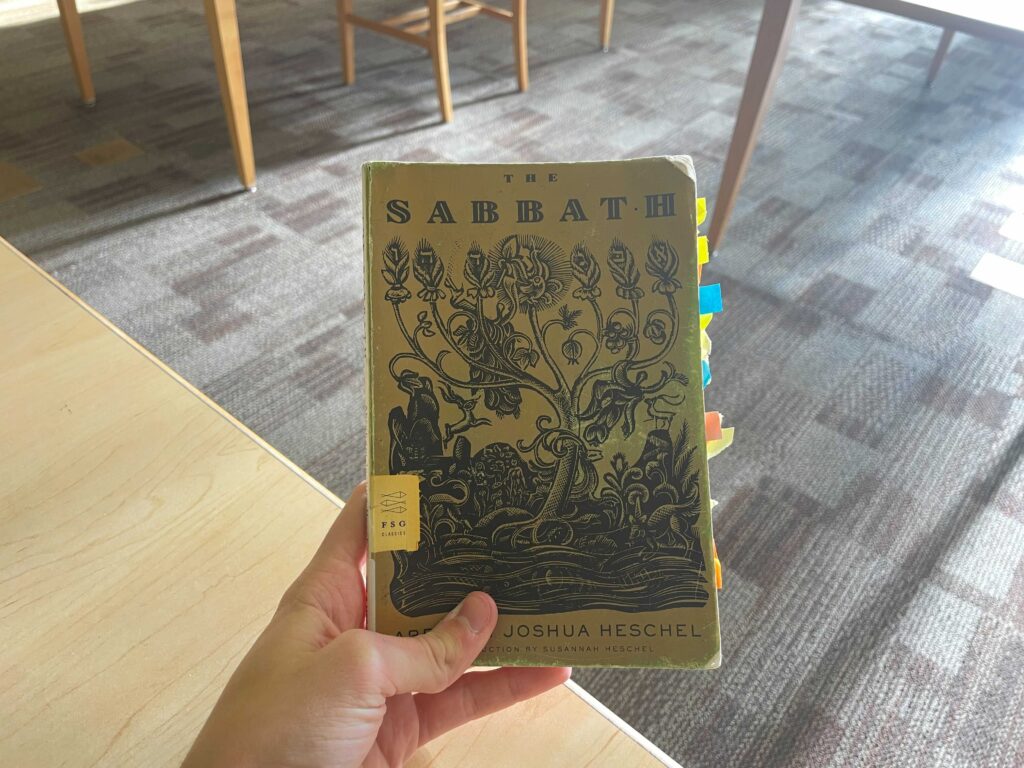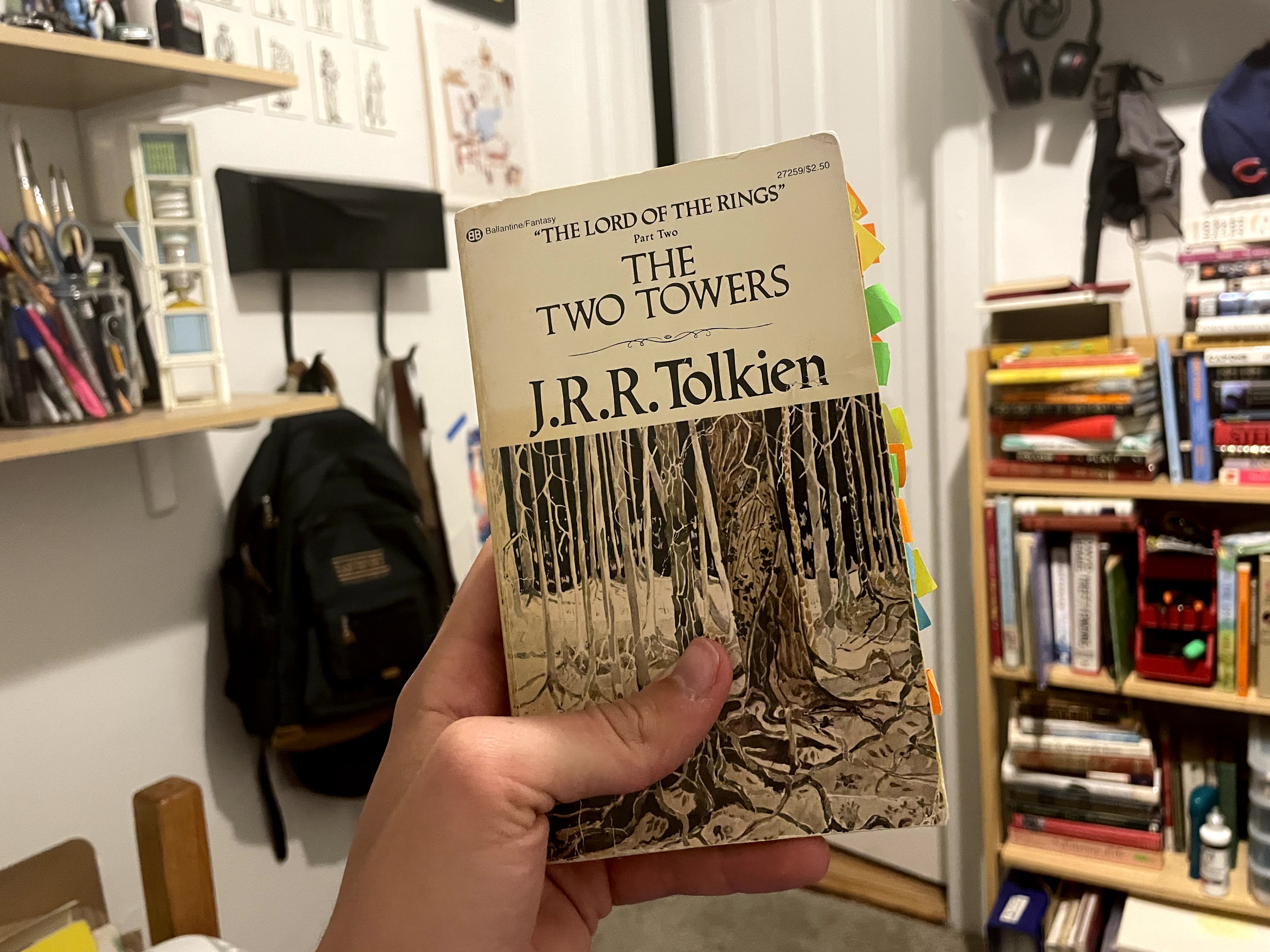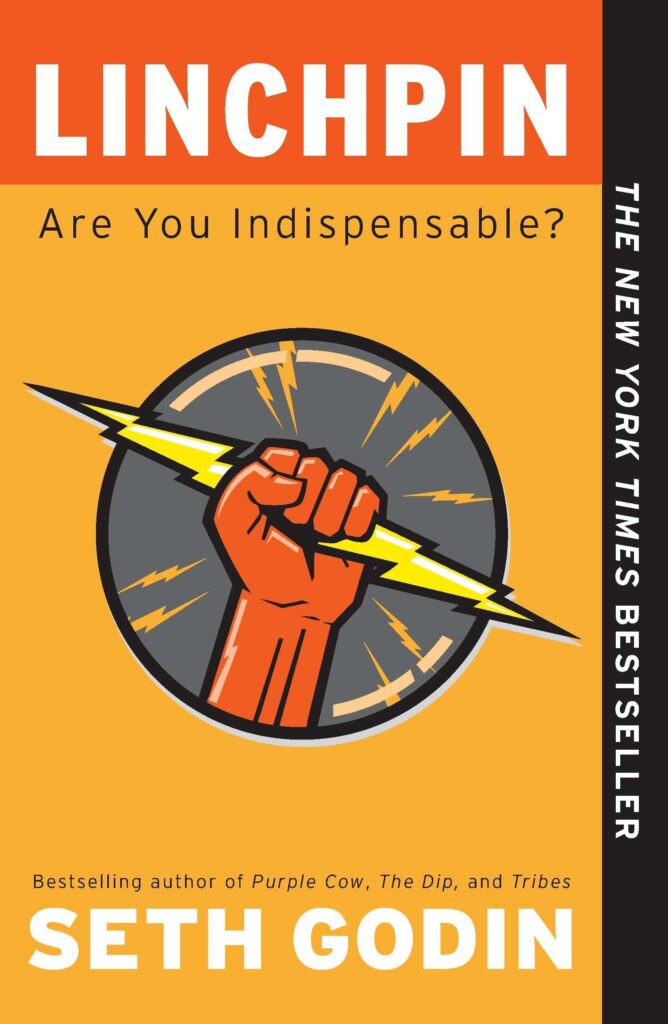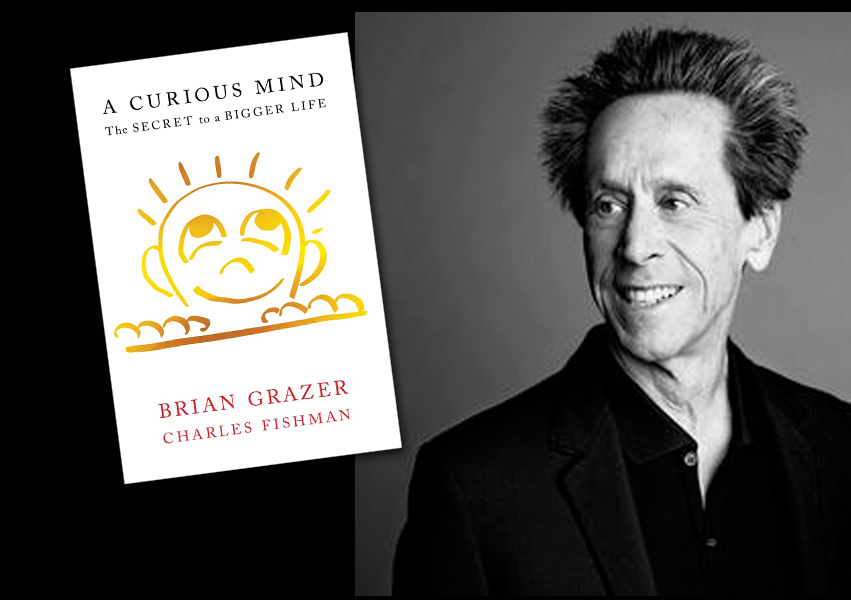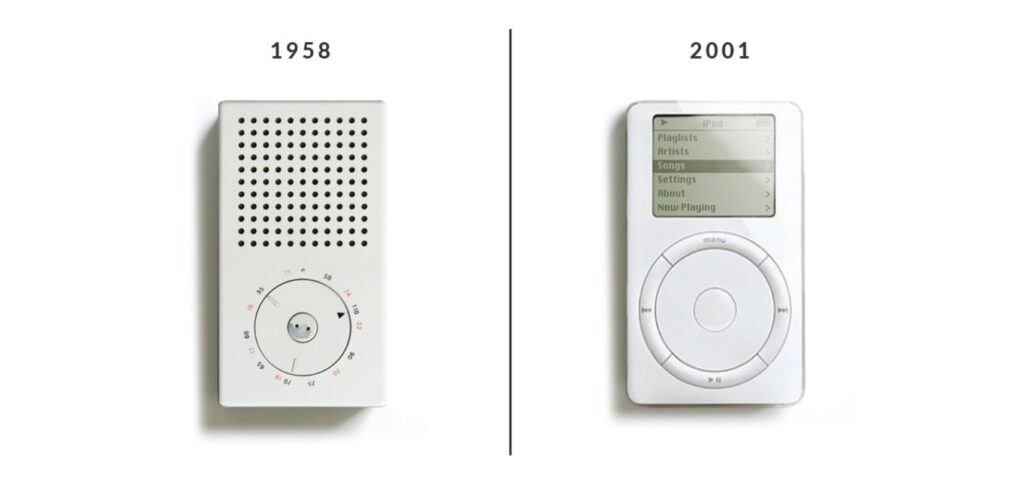
I just finished reading a graphic novel from the library called Seek You: A Journey Through American Loneliness. Quite an apt book to be published in 2021, written and illustrated by Kristen Radtke. It walks through the psychology and reality of loneliness in America. I’d recommend reading the entire thing, but on page 206, a passage struck me.

“‘Loneliness,” Kristen quotes, “is receiving steadily more attention.”
I read that line, and it felt like a knock over the head. It felt like such a clear and true juxtaposition. Written originally by Philosopher Lars Svendsen in 2015, it went on, “But that does not mean there is more of it out there.”
I then realized what Svendsen had been saying was not how I had at first read it. He was saying the idea of loneliness, the concept or diagnosis itself, had been receiving more attention by the scientific and general community.
But what I had taken it to mean in that first moment, was that loneliness comes, or is born out of, receiving steadily more attention. That more attention equals more loneliness. And, though I believe loneliness has indeed been getting more attention as a concept, I like my interpretation better.
Because isn’t it true? That all the stories we’re told of those fortunate enough to became famous, or incredibly wealthy, or both, find loneliness as an unwanted tagger-on to their success? That those people who we revere, adore, praise, indeed find that loneliness comes as a byproduct of receiving more attention.
This isn’t true for everyone, of course. But I wager a guess that a chart of fame and loneliness would look something like this.
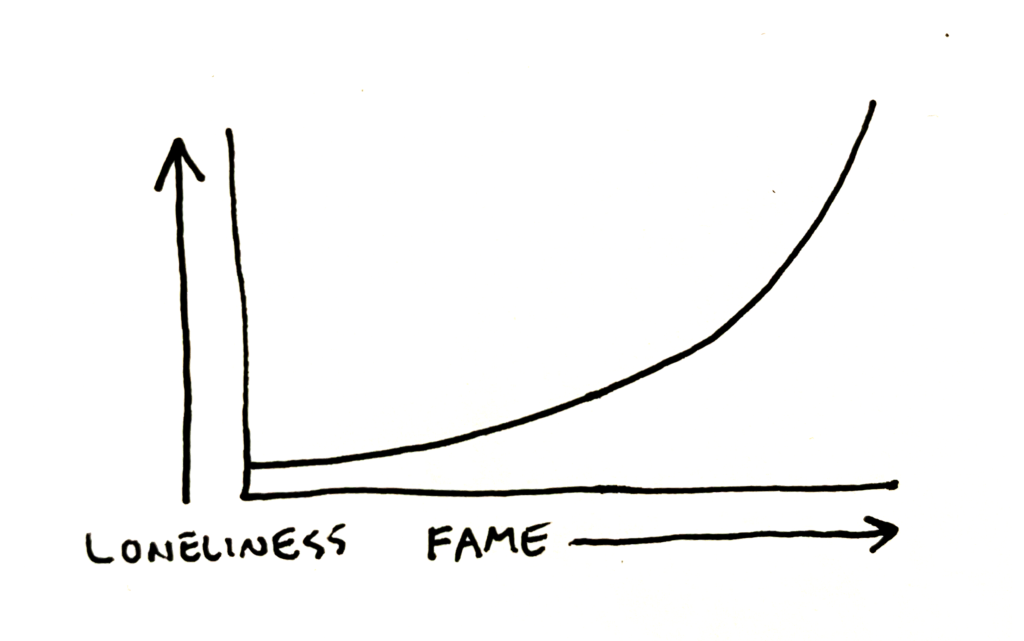
But still… We strive for fame. So many of us. Me included. We ignore the red flags, the “BEWARE” sign posts, the fables of those who have flown too close to the sun. Because the allure is too great. Because we think fame will solve our problems.
And for many, one of the problems for which fame seems a perfect cure is loneliness.
But what if we’re wrong? And we likely are. What if, instead, loneliness is receiving steadily more attention.
Then, of course, it would make sense to avoid fame and attention at all costs in pursuit of real, human relationships. To sacrifice the solitary grandeur of fame, for the warm embrace of community.
Here are some other quotes from Seek You I noted:
“Loneliness is often exacerbated by a perception that one is lonely while everyone else is connected. It’s exaggerated by a sensation of being outside something that others are in on: A family, a friendship, a couple, a joke.” p. 12
“The bond of a secret is an intoxicating trust fall, and each time I’ve learned I’ve been kept outside one – that a friend had confided in someone else but chosen not to share with me – it’s felt like an assassination of our closeness.” p. 82
“A study published in a 2008 issue of the Journal of Personality and Social Psychology, conducted by the late loneliness expert and pioneer John T. Cacioppo, explored expansive social networks and found that loneliness “occurs in clusters,” extending up to three degrees of separation from one lonely hub.” p. 287

